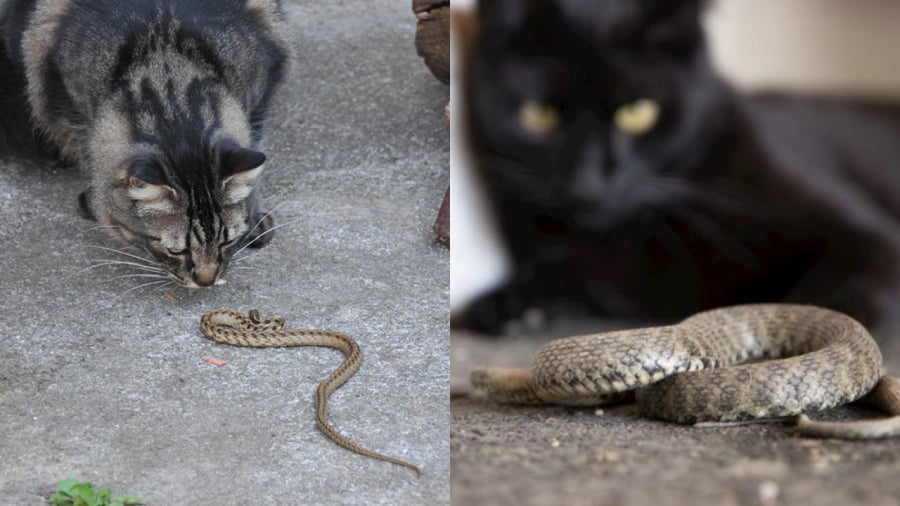Why are snakes afraid of cats?
Snakes are notorious for being dangerous and scary, especially venomous snakes. However, snakes are also afraid of larger predators. One of those predators is the cat.
We are familiar with the gentle and sleepy appearance of cats, but we forget that they are natural hunters. The prey of cats usually includes small animals like mice, birds, reptiles, including snakes.

Cats are larger than snakes and their sharp claws can cause significant damage. Cats also have quick reflexes and sharp canine teeth. In a confrontation between a cat and a snake, the cat usually has the advantage.
Cats can attack repeatedly, bite, scratch, and avoid long-range snake attacks.
Most cats are wary of snakes, and snakes are also wary of cats.
Cats like to chase moving objects, so snakes can attract their attention. Even when not hungry, cats can hunt for fun. They enjoy playing with their prey.

Cats can move flexibly and run and jump, which can confuse the snake. Cats have fast reflexes, so if they feel endangered, they can avoid or find a way to escape.
Cats can defend themselves against snakes or find ways to avoid them if the snakes are larger in size.
How to prevent snakes from entering the house
Keep dogs and cats to chase away snakes
Keeping dogs and cats in the house is a good way to prevent snakes from entering. Firstly, snakes are afraid of the barking and meowing sounds made by dogs and cats. Additionally, dogs and cats can catch mice, insects, and other reptiles, reducing the food source that attracts snakes. Dogs and cats can also quickly detect and alert when snakes enter the house.
Chase snakes away with garlic and onions
Garlic and onions are spices commonly found in kitchens. They have a strong smell and a pungent taste that repels insects and snakes.
You can mix finely chopped garlic with salt and sprinkle it around the house, or sprinkle it in the garden to prevent snakes. In the garden, you can plant onions and garlic to keep snakes away.
Use lemongrass essential oil
Snakes are very afraid of the smell of lemongrass essential oil, so this method will be effective to a certain extent. You can soak cotton balls in lemongrass essential oil and place them at doorsteps, entrances, and other openings where snakes can crawl into the house. Additionally, using essential oil diffusers or oil diffuser machines can also help prevent snakes from entering the house.
How to Effectively Treat Fishbone Issues at Home
Everyone loves feasting on the deliciousness of fish during the holidays. But, unfortunately, choking on fish bones is an unavoidable issue that may lead to devastating consequences if left unattended for a prolonged period. Let’s see how Dien May Xanh can help us out when fish bones get stuck in our throat.
Exploring Natural Foods for Allergy Relief
Dealing with allergies can be difficult and uncomfortable, especially for young children. Allergens such as pollen, cosmetics, and insects can cause serious issues for those affected. However, knowledge of the symptoms and taking the necessary precautions can help alleviate the troublesome effects of allergies, like itching, sneezing, and irritation.



































